 Two events last week led to this blog’s headline. The first was reading A Writer Prepares by Lawrence Block, the bestselling author of more than 50 mystery novels. This self-published memoir tells the story of his writing career up to the point where he published his first hardcover novel in 1966.
Two events last week led to this blog’s headline. The first was reading A Writer Prepares by Lawrence Block, the bestselling author of more than 50 mystery novels. This self-published memoir tells the story of his writing career up to the point where he published his first hardcover novel in 1966.
It’s a tale of his beginnings in the 1950s, when he was honing his writing chops by contributing short stories and novellas to pulp fiction magazines. They were known as such because they were printed on cheap wood-pulp paper, Nothing to do with the Quentin Tarantino movie of that name. Block, the 1994 recipient of the Grand Master Award from the Mystery Writers of America, sold his first short story in 1957 to Manhunt, a crime pulp magazine.
Death Cleaning Discovery
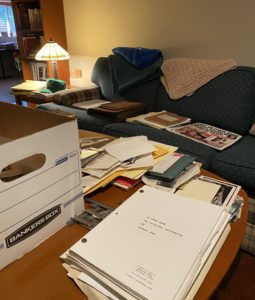 The second event was my attempt at “death cleaning” in our New York home. It’s the home we’ve lived in for the last 21 years so stuff has accumulated. Not wanting to leave a big mess for my son to clean up, I have decided to start on boxes of papers and documents. Unfortunately, at the moment, this just means moving each piece of paper from one pile to another, shuffling paperwork around, rather than tossing it, in case I discover that I ABSOLUTELY NEED it the very next day .
The second event was my attempt at “death cleaning” in our New York home. It’s the home we’ve lived in for the last 21 years so stuff has accumulated. Not wanting to leave a big mess for my son to clean up, I have decided to start on boxes of papers and documents. Unfortunately, at the moment, this just means moving each piece of paper from one pile to another, shuffling paperwork around, rather than tossing it, in case I discover that I ABSOLUTELY NEED it the very next day .
Fortunately, it also means that, at the very moment I was reading Block’s memoir, I came upon dozens of acceptance letters confirming my own contributions to pulp fiction in the UK.
Pulp Fiction Beginnings
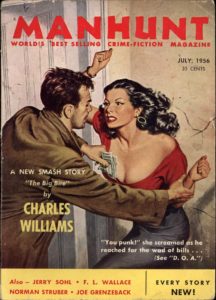 According to various dictionaries, the generally agreed upon definition of pulp fiction is short stories dealing with lurid or sensational subjects often printed on rough, low-quality paper. They’re instantly recognizable by their lurid covers and sensational cover lines.
According to various dictionaries, the generally agreed upon definition of pulp fiction is short stories dealing with lurid or sensational subjects often printed on rough, low-quality paper. They’re instantly recognizable by their lurid covers and sensational cover lines.
Many now-famous authors like Mickey Spillane, Raymond Chandler, Dashiell Hammett, James Cain and of course Lawrence Block got their start writing pulp fiction. I can’t pretend to even be thinking about joining the ranks of the above. But I, too, got my start in a type of pulp fiction known as the “confessionals.”
In the UK, Love Affair and True Magazine were part of the prestigious IPC Magazines family. They were the British counterparts of True Story, True Confessions and the earliest of the confessionals launched in the U.S. in 1922 titled, I Confess.
Personal Experiences, Please
The covers appealed to women with a promise to deliver true-to-life experience and life lessons. Of course, they were not actual real-life experiences but were usually penned by professional female writers. True Story advertised its need for “short stories of about 3.500 words told in the first person.” The ad emphasized that “stories should read as if they were personal experiences [and] be told in words of one or two syllables.”
The British magazines listed similar requirements. It sounded simple enough. In 1974, while between newspaper reporter positions, I penned a confessional and sent it off to Love Affair.
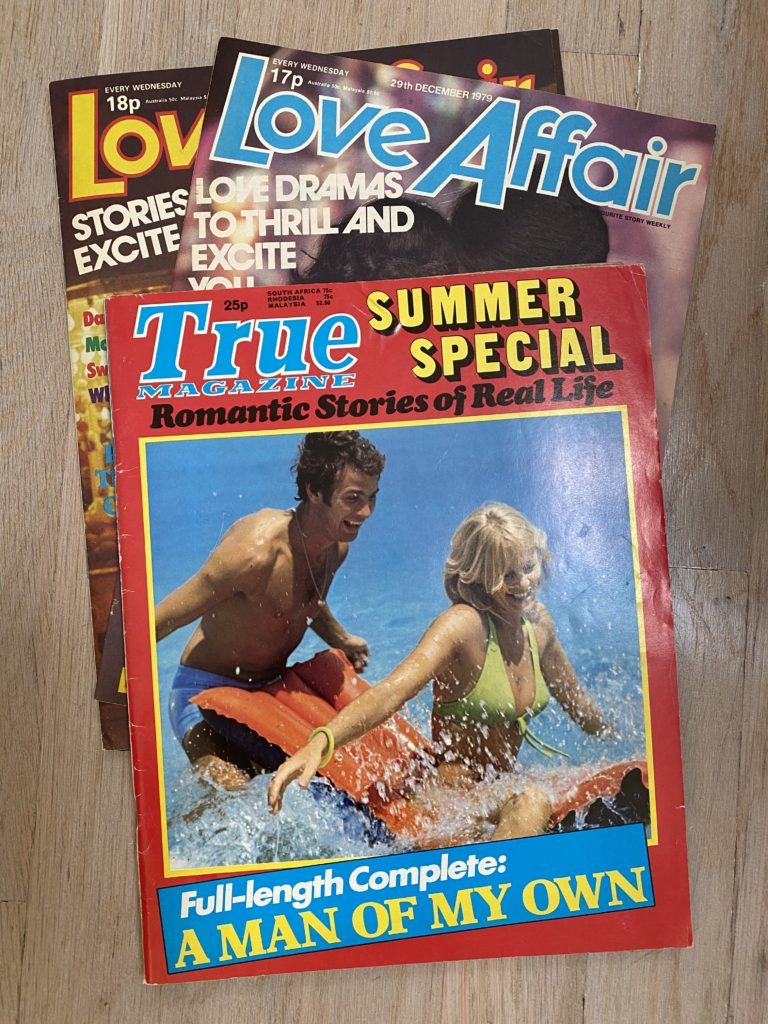 Turned out, it was not quite as easy as it seemed. My first effort got me a rejection letter (“not quite right for publication.) But also words of encouragement. “I like your style of writing,” the fiction editor wrote, “and would be pleased to consider further stories from you.”
Turned out, it was not quite as easy as it seemed. My first effort got me a rejection letter (“not quite right for publication.) But also words of encouragement. “I like your style of writing,” the fiction editor wrote, “and would be pleased to consider further stories from you.”
Sin. Suffer. Repent.
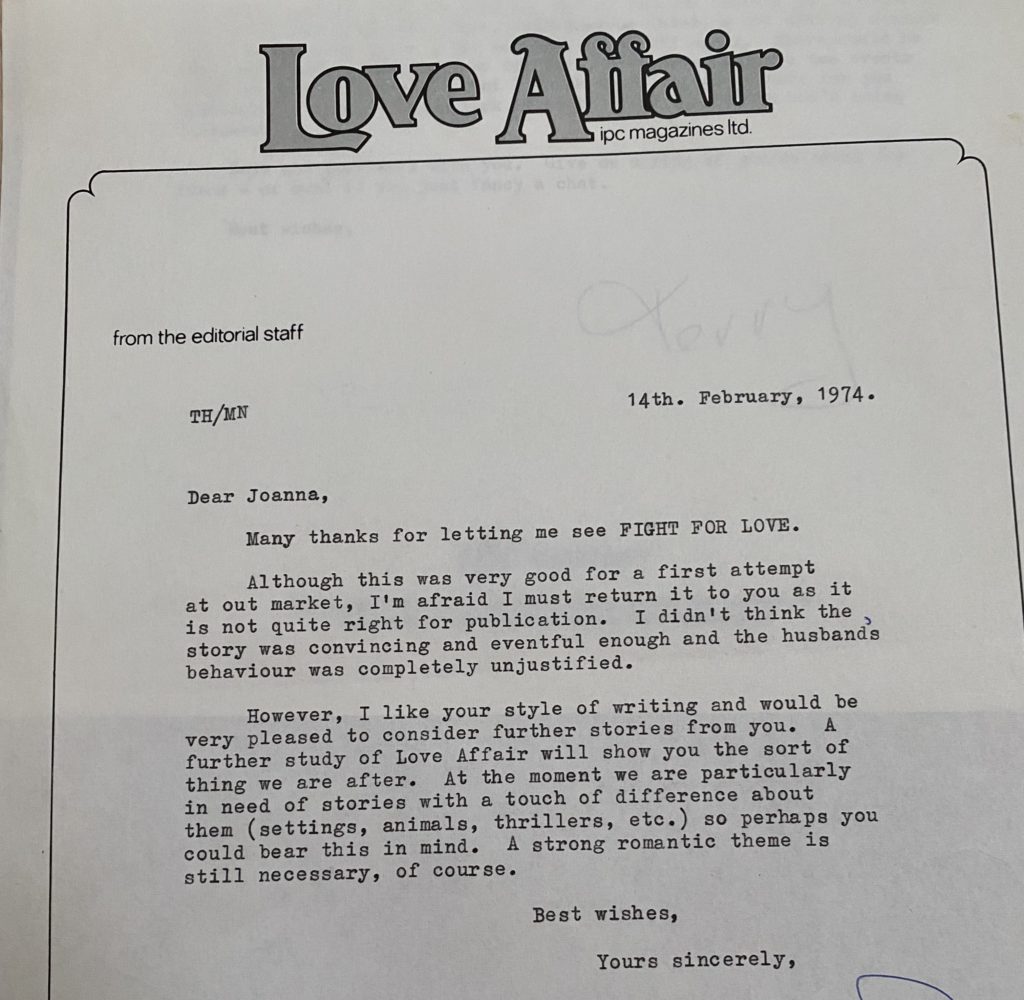 Apparently there was a formula to these first person stories. Simply stated it was: Sin. Suffer. Repent. The female protagonist violates some standard of behavior (and there were many standards to violate back then); consequently suffers because of it, learns her lesson through her own efforts and realization, and then resolves to live a better life.
Apparently there was a formula to these first person stories. Simply stated it was: Sin. Suffer. Repent. The female protagonist violates some standard of behavior (and there were many standards to violate back then); consequently suffers because of it, learns her lesson through her own efforts and realization, and then resolves to live a better life.
Once you grasped the formula, the rest was a piece of cake. Between 1974 and 1979 when I moved to New York, I supplied the UK confessionals, specifically Love Affair, with dozens of these stories. They had titles like Hooked On His Love and Whispers of Suspicion and Ruthless Love. You get the picture.
Most times, I came up with the idea. Sometimes, the magazine’s editors came up with the idea and commissioned me to write it. Sometimes, a story was tied to a color picture. Eventually, I was commissioned to write the most provocative confessional thus far in the magazine’s history:
It was about a wife who takes off on a vacation without her husband and has an affair in a steamy Italian resort with a steamy Italian. I don’t remember all the details of the story, but I still clearly remember the title: He Taught Me How To Love. Holiday romances then became something of a staple.
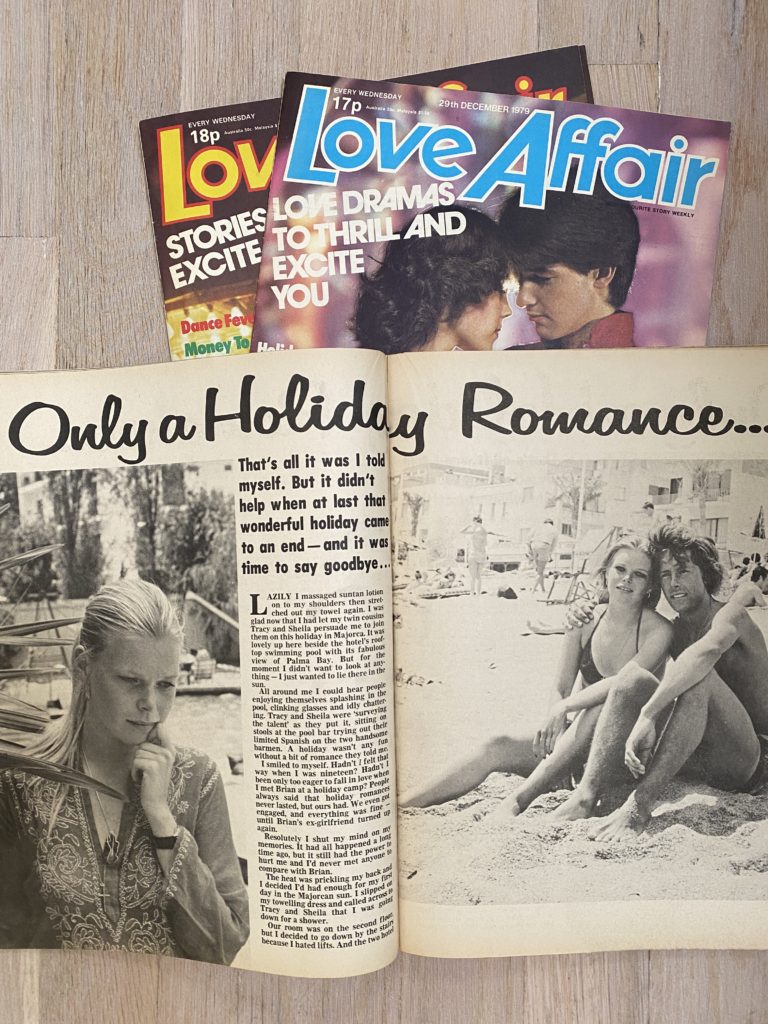
Seven Part Serial
I was prolific and I was in demand. Even after landing a new job as an investigative reporter at the London Evening News, I was churning out fiction for Love Affair during my days off. This being a time before you could upload and email manuscripts to editors, my father volunteered to deliver mine once I started my day job.
My father enjoyed doing it. He was retired and had time on his hands — and as a senior (Old Age Pensioners as they were called back then) he had a pass for the London Underground that allowed him to travel on the subways for free.
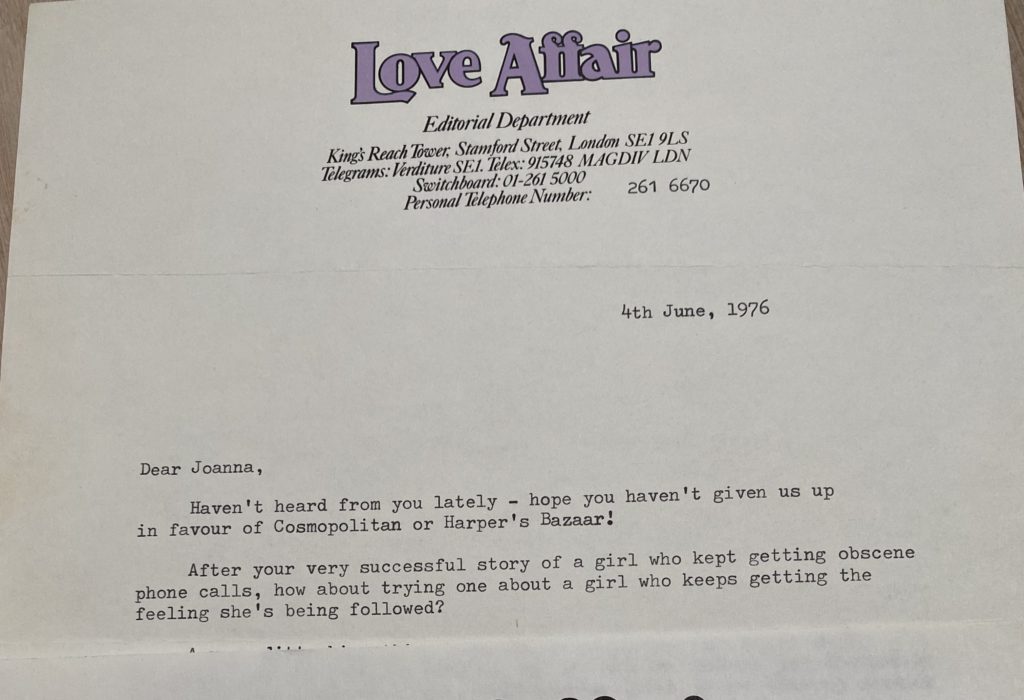 In 1977, I was commissioned to write a seven-part serial. A mini-novel. I can’t now remember what it was about. However, as was usual, I would have submitted a synopsis and installment-by-installment outline. Also the usual process would have been for the magazine to wait till all seven installments were in house before beginning publication.
In 1977, I was commissioned to write a seven-part serial. A mini-novel. I can’t now remember what it was about. However, as was usual, I would have submitted a synopsis and installment-by-installment outline. Also the usual process would have been for the magazine to wait till all seven installments were in house before beginning publication.
For whatever reason, in this instance, the Editor-in-Chief decided to go with it before I had turned in the final installment. I took it as confidence in my professionalism and ability to adhere to deadlines.
The Most Heartbreaking Deadline Ever
Unfortunately, midway through my writing of this particular series, my father suffered a sudden, major heart attack and passed away at the age of 67.
I was totally devastated. However, knowing how he had contributed to getting my stories in on deadline, and knowing that he would have urged me — no, make that expected me— to continue to produce the rest of my installments on deadline, I went ahead and did exactly that.
It was a weird feeling writing about fictional people with fictional emotions when mine were rampaging off the charts, but it never occurred to me, back then, to make any sort of excuse for not completing a series the magazine had already started running.
Next Week: The confessionals turned out to be a good preparation for writing some of the bestselling cover stories for Star magazine, a supermarket tabloid where I quickly found my niche after leaving the UK and landing in New York.
Rejected on Valentine’s Day – have they no shame? 😛
Haha! Good eye, Eldon. Must say, being the non-sentimental female that I am, I never noticed the date.
LOVE this story about your background! There’s so much fascinating stuff about your life!
Thank you. I don’t know if it was so fascinating, but it was certainly an apprenticeship!